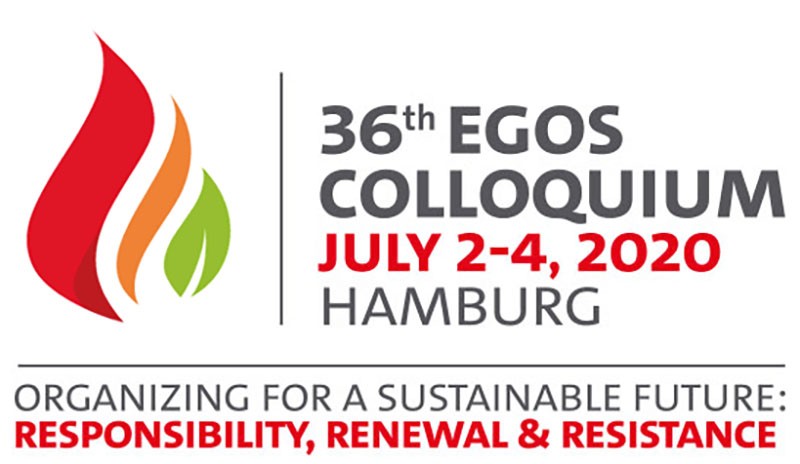Sub-theme 31: Intricacies of Organizational Stability and Change: Historical Imprints, Path Dependencies and Beyond ---> CANCELLED!
Call for Papers
This sub-theme seeks to bring together researchers from all over the world who study how organizations deal with change
when they are confronted with processes that promote stability, including imprinting, path dependence and inertia more generally.
The aim is to foster exchange of fresh empirical insights and new theoretical ideas to further understand stabilizing and
destabilizing mechanisms in organizations and inter-organizational relations. The sub-theme connects to the general theme
of the 36th EGOS Colloquium – “Organizing for a Sustainable Future: Responsibility, Renewal & Resistance – by examining
the dynamics of resistance and renewal in and between organizations. It focuses on the dialectics of making use of routines,
its reinforcement and unintended consequences in terms of rigidities, dysfunctional flips, organizational conservatism, and
related processes.
The field of stabilizing dynamics – or more generally, the tension between stability and
change – provides a particularly advantageous context for exploring the consequences of change efforts as they are developing
on different levels: group, organizational, inter-organizational and organizational field, embedded in different institutional
environments and numerous strategic contexts. At the same time, research on such types of processes and the evolution of organizational
dynamics could benefit from EGOS, as the Colloquium provides a particularly fruitful context for bringing together research
from a wide variety of disciplines, theoretical backgrounds, and institutional settings.
The sub-theme wishes
to attract both high-quality contributions that are ready to be submitted to a research journal as well as research in progress
that explores these challenging issues. It seeks to provide an opportunity for engaging in constructive dialogue and to encourage
mutual learning among participating scholars.
We particularly invite contributions that focus on one or more
of the following issues:
The role of initial conditions, internal and external to an organization, for triggering stabilizing dynamics in terms of imprinting, path dependence and inertial alignments
Making stabilizing dynamics reflexive in everyday organizing
Stabilizing processes as systemic forces that transcend individual routine compliance
Self-reinforcing processes as drivers of stabilizing dynamics
Diffusion of stabilizing and change dynamics and contextual factors that foster their emergence
Processes and interventions likely to modify or to stop stabilizing dynamics (e.g. external shocks, paradoxical interventions, charismatic leadership or unlearning)
Re-conceiving the tension between stabilizing and change dynamics as multi-level-phenomena
Papers studying such
issues and related topics, empirically or conceptually, comparatively or monographically, with regard to recent or historical
developments, are cordially invited.
References
- Farjoun, M. (2010): “Beyond Dualism: Stability and Change as a Duality.” Academy of Management Review, 35 (2), 202–225.
- Gilbert, C.G. (2005): “Unbundling the Structure of Inertia: Resource versus Routine Rigidity.” Academy of Management Journal, 48 (5), 741–763.
- Kremser, W., & Schreyögg, G. (2016): “The Dynamics of Interrelated Routines. Introducing the Cluster Level.” Organization Science, 27 (3), 698–721.
- Marquis, C., & Kunyuan, Q. (2018): “Waking from Mao’s Dream: Communist Ideological Imprinting and the Internationalization of Entrepreneurial Ventures in China.” Administrative Science Quarterly, first published online on September 14, 2018; https://journals.sagepub.com/doi/10.1177/0001839218792837
- Marquis, C., & Tilcsik, A. (2013): “Imprinting: Toward a Multilevel Theory.” Academy of Management Annals, 7 (1), 195–245.
- Schreyögg, G., & Sydow, J. (2010): “Organizing for Fluidity? Dilemmas of New Organizational Forms.” Organization Science, 21 (6), 1251–1262.
- Sydow, J., Schreyögg, G., & Koch, J. (2009): “Organizational Path Dependence: Opening the Black Box.” Academy of Management Review, 34 (4), 689–709.
- Tripsas, M. (2009): “Technology, Identity, and Inertia Through the Lens of ‘The Digital Photography Company’.” Organization Science, 20 (2), 441–460.


